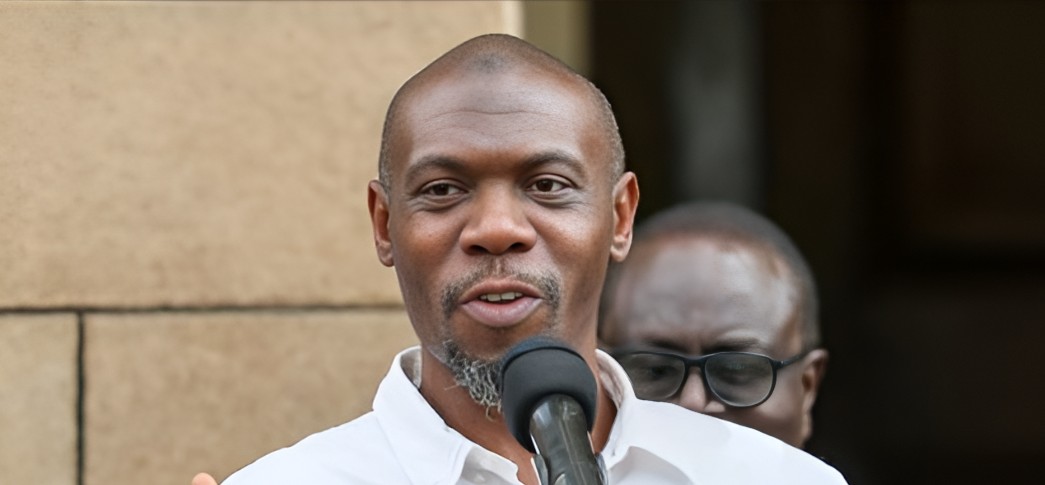The release of Stephen Munyakho, a Kenyan who spent 14 years on death row in Saudi Arabia, brings to light the wider challenges faced by many Kenyans entangled in foreign legal systems.
Munyakho’s case, marked by complicated Shariah law procedures and a costly blood money settlement, reveals the difficulties families endure while trying to secure justice and humane treatment for loved ones overseas.
Speaking to Citizen TV on Wednesday night, Munyakho described how his ordeal began after a workplace conflict in 2011 ended with the death of his colleague, Abdul Halim.
Though initially sentenced to five years, his fate changed when Halim’s widow rejected the state’s blood money offer and pushed for a death sentence.
“She declined the blood money offer and said she wanted the death sentence. That’s when the death sentence came into play,” Munyakho said. “I was supposed to be out in 2016, but private rights overrode the public ruling.”
Under Saudi Arabia’s legal framework, there are two kinds of justice: public rights, which the government manages, and private rights, which give victims’ families the power to demand compensation or execution.
The widow’s initial demand was 10 million riyals, about Sh400 million, but after negotiations, the amount dropped to 3.5 million riyals (around Sh150 million).
Despite efforts to settle out of court, the Saudi government insisted on formal legal processes, which prolonged Munyakho’s imprisonment.
His death sentence issued in 2016 was not carried out immediately because Halim’s children were still minors. Islamic law requires that the heirs reach adulthood to consent to forgiveness or execution.
“The children came of age around 2019. That’s when negotiations resumed. The figure fluctuated from 5 million to 4 million and finally settled at 3.5 million riyals by 2023,” Munyakho explained.
His family’s struggle to meet the demanded blood money was heartbreaking. His mother, Dorothy Kweyu, recounted receiving a letter with payment instructions from the diaspora office in 2023.
“I told them there’s no way my family can raise that kind of money in a lifetime,” she said. “But I still collected the letter and shared it with my son, Cyprian. He started calculating how we might raise it, whether with 1 million Kenyans contributing Sh150 each, or less. We tried everything.”
A small group of nine supporters helped launch a nationwide fundraising campaign, involving flyer distribution, church visits, and public walks. Yet, progress remained slow.
“By November, we had only raised Sh20 million,” said Ken Bosire, the campaign leader.
Despair set in when the widow renewed her demand for execution.
“The widow became adamant. She said, ‘Steve should die, and all Kenyans should be hanged.’ That crushed us,” Bosire said.
At their lowest point, the group nearly gave up hope.
“We left it to God. We had tried everything. We even contacted the Pope. But we said one thing: we would never give up,” he said.
The breakthrough came during Ramadan when an appeal, reportedly backed by Kenya’s Head of State, prompted the Muslim World League to cover the full settlement amount.
This led to Munyakho’s release from Shimeisi Prison in Mecca on July 22. The Saudi government also paid for his emergency travel documents and deportation.
Munyakho recalled the harsh conditions of his imprisonment, especially in the overcrowded Briman Prison where outdoor activities were nearly nonexistent.
Later, he was moved to a more spacious facility but remained the only Kenyan on death row.
“There were many others, mostly for drug-related offences and manslaughter. Some Saudis, too,” he said.
Prime Cabinet Secretary Musalia Mudavadi spoke on the issue, revealing that nearly 1,000 Kenyans are currently caught up in legal difficulties around the world.
“These are Kenyans in many different countries, and we could only give you the numbers because we also have to respect the privacy of these individuals and their families,” he said. “Our role is to be supportive in trying to facilitate humane treatment (and) possible release.”
Stephen Munyakho’s story is a vivid reminder of the challenges Kenyan citizens face abroad, the complexities of foreign legal systems, and the emotional and financial strain placed on families fighting to bring their loved ones home.

